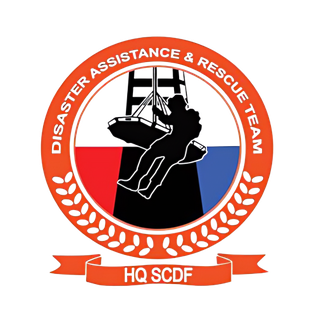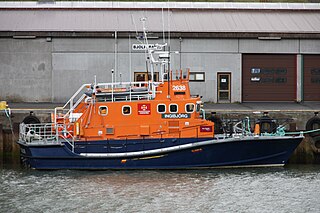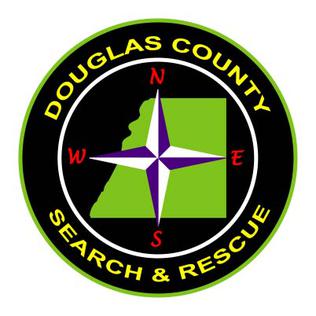
Search and rescue (SAR) is the search for and provision of aid to people who are in distress or imminent danger. The general field of search and rescue includes many specialty sub-fields, typically determined by the type of terrain the search is conducted over. These include mountain rescue; ground search and rescue, including the use of search and rescue dogs ; urban search and rescue in cities; combat search and rescue on the battlefield and air-sea rescue over water.

Mountain rescue refers to search and rescue activities that occur in a mountainous environment, although the term is sometimes also used to apply to search and rescue in other wilderness environments. This tends to include mountains with technical rope access issues, snow, avalanches, ice, crevasses, glaciers, alpine environments and high altitudes. The difficult and remote nature of the terrain in which mountain rescue often occurs has resulted in the development of a number of specific pieces of equipment and techniques. Helicopters are often used to quickly extract casualties, and search dogs may be deployed to find a casualty.
The Disaster Assistance Response Team (DART) (French: Équipe d'intervention en cas de catastrophe (EICC)) is a rapidly deployable team of 200 Canadian Forces personnel. It provides assistance to disaster-affected regions for up to 40 days. DART's headquarters is located in Kingston, Ontario. DART was created by the Canadian government in 1996 in the aftermath of the inadequate response to the 1994 Rwandan genocide, when Canada's aid arrived after the peak of a cholera epidemic. The government determined that it would be of the utmost importance in many disasters if it was able to rapidly deploy a group of people until long-term aid arrived. DART has an annual budget of CA$500,000, although during specific incidents the Parliament of Canada can choose to temporarily allocate millions of dollars to DART to fund their response effort. For example, Operation Torrent, the aid mission to Turkey in the wake of the 1999 earthquake which left 17,000 people dead, saw CA$15 million used by DART in the response.

The Disaster Assistance and Rescue Team (DART) is the elite unit of the Singapore Civil Defence Force (SCDF) that specialises in complex incidents such as technical rescue, urban search and rescue, water rescue operations and prolonged firefighting.

Canines, Canis familiaris, perform many essential roles within society, most notably in the fields of assistance, therapy, detection, and protection. Falling within the field of detection, a search-and-rescue (SAR) dog is one trained to respond to crime scenes, accidents, missing persons events, as well as natural or man-made disasters. These dogs detect human scent, which is a distinct odor of skin flakes and water and oil secretions unique to each person and have been known to find people underwater, snow, and collapsed buildings, as well as remains buried underground. SAR dogs are a non-invasive aid in the location of humans, alive or deceased.

The International Life Saving Federation (ILS) is an organisation for drowning prevention, water safety, lifesaving and lifesaving sports.

A FEMA Urban Search and Rescue Task Force is a team of individuals specializing in urban search and rescue, disaster recovery, and emergency triage and medicine. The teams are deployed to emergency and disaster sites within six hours of notification. The Federal Emergency Management Agency (FEMA) created the Task Force concept to provide support for large scale disasters in the United States. FEMA provides financial, technical and training support for the Task Forces as well as creating and verifying the standards of Task Force personnel and equipment.

A rescue robot is a robot designed to aid in the search and rescue of humans. They may assist rescue efforts by searching, mapping, removing rubble, delivering supplies, providing medical treatment or evacuating casualties.
Explorer Search and Rescue (ESAR) are teams of Explorers in the Learning for Life program of the Boy Scouts of America who are trained and deployed for search and rescue missions. Well-developed ESAR programs emerged in the state of Washington in the mid-1950s and were followed by others in California and elsewhere. The rugged, mountainous terrain of these areas often require massive amounts of manpower for proper searches for missing people, not to mention their rescue and evacuation from remote areas. The ESAR mission has also expanded over the years to include urban search and rescue and other disaster-related disciplines. Many ESAR groups also provide wilderness safety training to the public.

Mounted search and rescue (MSAR) is a specialty within search and rescue (SAR), using horses as search partners and for transportation to search for missing persons. SAR responders on horseback are primarily a search resource, but also can provide off-road logistics support and transportation. Mounted SAR responders can in some terrains move faster on the ground than a human on foot, can transport more equipment, and may be physically less exhausted than a SAR responder performing the same task on foot. Mounted SAR responders typically have longer initial response times than groundpounder SAR resources, due to the time required to pick up trailer, horse(s), and perhaps also water, feed, and equipment.

Mountain Rescue Ireland is the representative body for mountain rescue services on the island of Ireland. It has eleven member organisations - ten regional mountain rescue teams and one national canine search team (SARDA). Mountain Rescue Ireland (MRI) is a member of the International Commission for Alpine Rescue (IKAR-CISA).
The International Rescue Corps (IRC) is a volunteer organisation involved in disaster rescue, based in Grangemouth, Scotland. Its motto is "United To Save Life".

Slysavarnarfélagið Landsbjörg or the Icelandic Association for Search and Rescue (ICE-SAR) is a national association of rescue units and accident prevention divisions. Its member organizations consist of 99 rescue units, 70 accident prevention and women's divisions and 50 youth sections. Altogether the association has about 10,000 volunteer members and are present in most towns. Although the rescue teams function as a kind of public service, they are not supported or paid for by the government but by donation.

Marin County Search and Rescue is an all-volunteer organization in Marin County within Marin County Sheriff's Office. With approximately sixty active members, Marin County's Search and Rescue responds to searches for missing children and adults, evidence and other search requests in the county and on mutual aid calls anywhere in the state of California. Marin SAR is a mountain rescue Type I team with the motto of: "Anytime, Anywhere, Any Weather."

AKUT Search and Rescue Association is a Turkish non-governmental organization for disaster search and rescue relief. It was established in 1995 as a grassroots organization by seven leading outdoor athletes of Turkey and officially founded as an association in 1996.

Emergency Response Team Search and Rescue (ERTSAR) is an INSARAG listed international disaster response NGO search and rescue team, with bases in Henley-on-Thames, United Kingdom and Toronto, Canada.
Operation Maitri was a rescue and relief operation in Nepal by the government of India and Indian armed forces in the aftermath of the April 2015 Nepal earthquake. Indian government responded within few minutes of the quake. It started on 26 April 2015 and also involved Nepali ex-servicemen from India's Gurkha Regiments for interface for guidance, relief and rescue.

Douglas County Search and Rescue is an all-volunteer organization in Douglas County within Douglas County Sheriff's Office. With approximately sixty active members year-round, Douglas County's Search and Rescue responds to searches for missing children and adults, evidence and other search requests in the county and on mutual aid calls anywhere in the state of Colorado. Douglas SAR is a mountain rescue Type I certified team able to handle the toughest terrain and remain out in the field without resupply for extended periods.

@fire International Disaster Response Germany is a German non-profit, non-governmental civil protection organisation which assists during natural disasters. The organisation was founded in 2002 in Wallenhorst, Germany as a pro bono network of professional and volunteer firefighters. Since 2010 @fire is member of the UN-Organisation INSARAG.

Various countries and organizations have responded to the 6 February 2023 Turkey–Syria earthquake. At least 105 countries and 16 international organizations had pledged support for victims of the earthquake, including humanitarian aid. More than eleven countries provided teams with search and rescue dogs to locate victims under the debris and monetary support was offered as well.

















